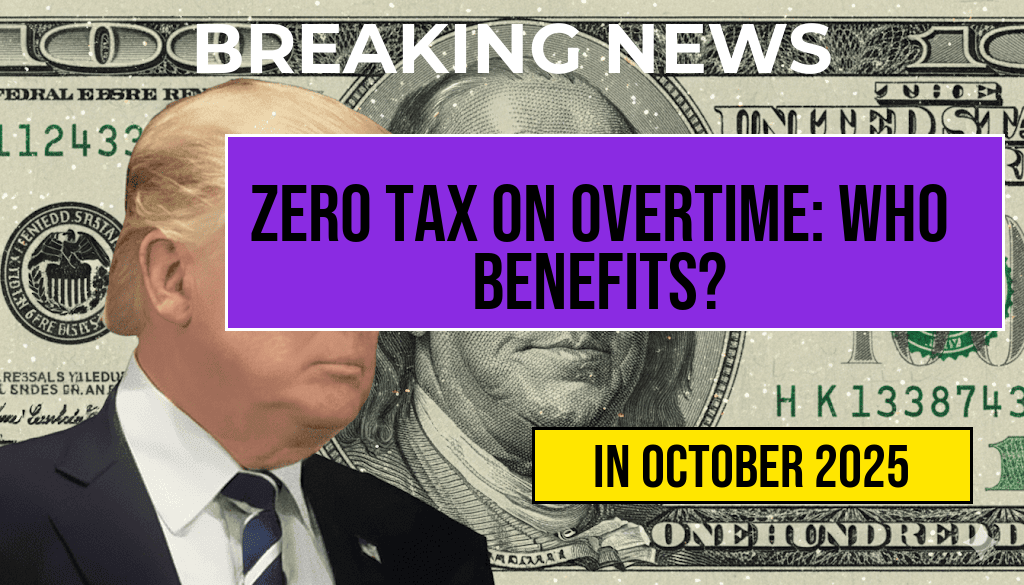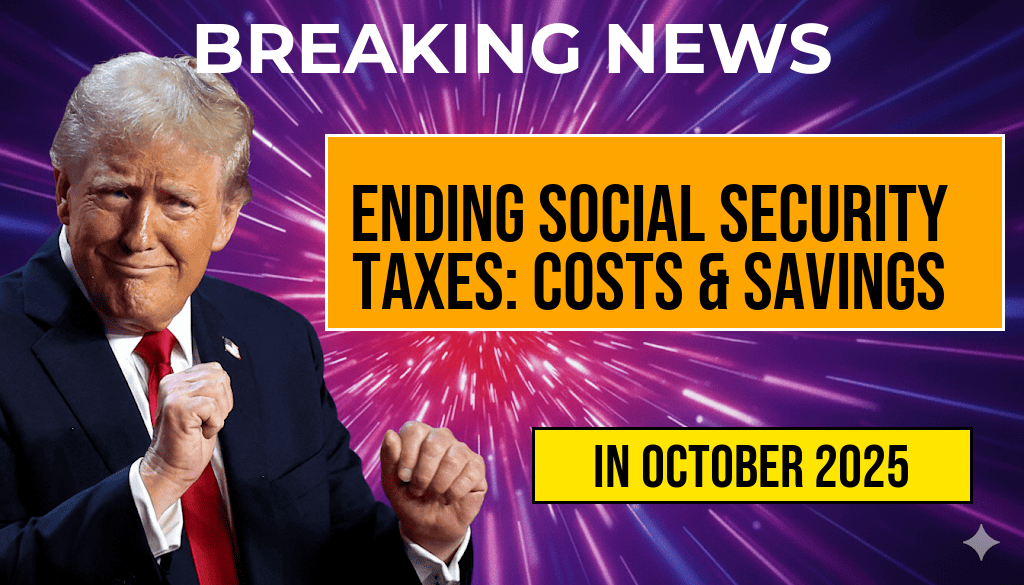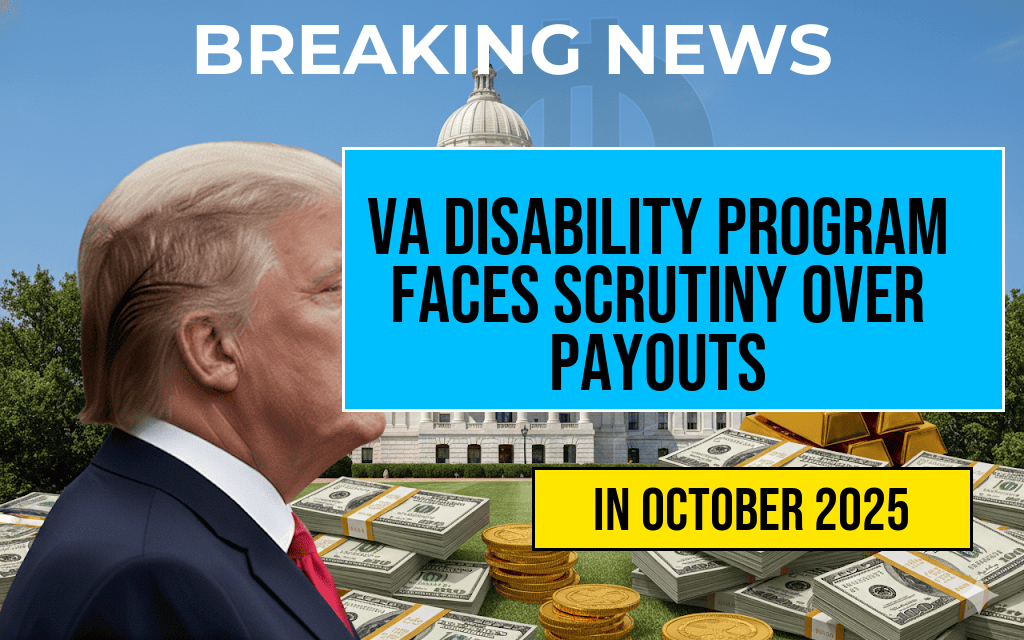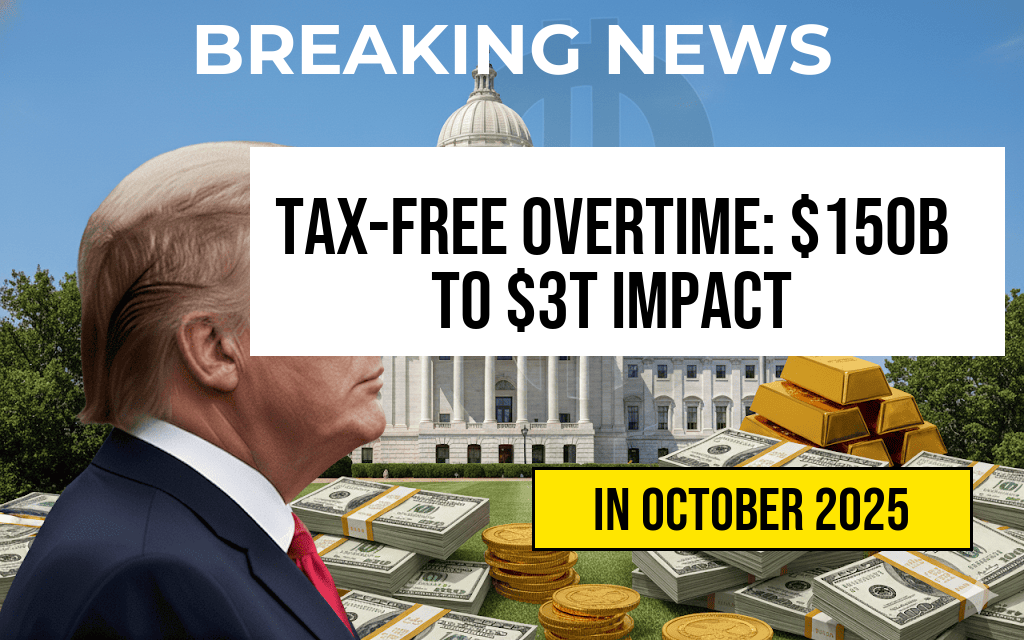A new proposal for an early tax refund is stirring debate across the nation as it aims to eliminate taxes on overtime pay and tips. Advocates argue that this move could provide significant financial relief for workers in various sectors, particularly those who rely on overtime for their income. Critics, however, worry about the potential long-term implications for state revenue and the broader economy. As discussions unfold, the question remains: who truly benefits from a zero-tax policy on overtime and tips?
Understanding the Proposal
The early refund proposal, currently gaining traction in several states, suggests that individuals should not be taxed on any earnings derived from overtime work or tips received. The initiative aims to enhance the take-home pay of workers, particularly in industries like hospitality and retail, where tipping is common.
Key Features of the Proposal
- No taxation on overtime earnings: Workers would keep 100% of their overtime pay, potentially increasing their overall income.
- Tax exemption on tips: Employees in service-oriented jobs would not pay taxes on tips, which can constitute a significant portion of their earnings.
- Early refund mechanism: The proposal suggests implementing a system to provide refunds for taxes paid on these earnings in previous years.
The Rationale Behind the Proposal
Supporters of the zero-tax proposal argue that it addresses income inequality by allowing lower- and middle-income workers to retain more of their earnings. This demographic often relies on overtime and tips to make ends meet, especially in an economy where living costs continue to rise.
Economic Implications
Proponents believe that increasing disposable income for workers could stimulate local economies. By enabling workers to spend more, businesses may see an uptick in sales, potentially leading to job creation and economic growth. According to a report by the Economic Policy Institute, raising the earnings of low-wage workers can have a ripple effect, boosting overall economic activity.
Concerns and Criticisms
Despite the potential benefits, there are significant concerns surrounding the proposal. Critics argue that eliminating taxes on overtime and tips could lead to substantial revenue losses for state and local governments. This loss could result in cuts to essential services such as education, healthcare, and infrastructure.
Fiscal Responsibility
- Impact on government funding: States depend on income tax revenue to fund various programs. A reduction in this revenue stream could necessitate budget cuts.
- Long-term sustainability: Critics express concerns about the long-term viability of the proposal, questioning whether it can be supported without compromising essential public services.
- Potential for wage stagnation: Some fear that employers may be less inclined to raise base pay if overtime becomes more lucrative without tax implications.
Who Stands to Gain?
The primary beneficiaries of a zero-tax policy on overtime and tips would be hourly workers, especially in low-wage sectors. These individuals often rely heavily on overtime hours and tips to supplement their income. A significant increase in their take-home pay could lead to improved living standards and financial security.
Potential Challenges for Workers
While the proposal aims to benefit workers, there are challenges to consider. For example, some workers might find themselves working longer hours to take advantage of overtime pay. This could lead to increased stress and burnout. Additionally, if employers adjust their compensation structures in response to the policy, the overall impact on workers’ financial health could vary.
Conclusion
As the conversation around the early refund proposal continues, stakeholders from various sectors will need to weigh the potential benefits against the drawbacks. Understanding who stands to gain—and at what cost—will be crucial in determining the future of this initiative. As states consider implementing such policies, the broader implications for both workers and government finances will be critical areas of focus.
For more information on the economic impacts of wage policies, see the Economic Policy Institute and explore the details of tax structures at Forbes.
Frequently Asked Questions
What is the “Zero Tax on Overtime” proposal?
The “Zero Tax on Overtime” proposal aims to eliminate taxes on overtime pay and tips for workers, allowing them to keep more of their earnings. This initiative is designed to provide financial relief for employees who often work extra hours.
Who benefits from the elimination of taxes on overtime and tips?
The primary beneficiaries of this proposal are workers who receive overtime pay and tips. By not taxing these earnings, employees can increase their take-home pay, potentially improving their overall financial situation.
Are there any drawbacks to the zero tax proposal?
Critics argue that while the proposal may benefit workers in the short term, it could lead to reduced government revenue, impacting public services and infrastructure. Additionally, there are concerns about the long-term sustainability of such tax cuts.
How would this proposal impact employers?
Employers might see a change in their payroll expenses due to the increased disposable income for employees, which could lead to higher productivity and morale. However, they may also face challenges in adjusting to a new tax framework.
Is there any indication of when this proposal might be implemented?
Currently, there is no set timeline for the implementation of the “Zero Tax on Overtime” proposal. Ongoing discussions among policymakers will determine the feasibility and timing of any legislative changes.








